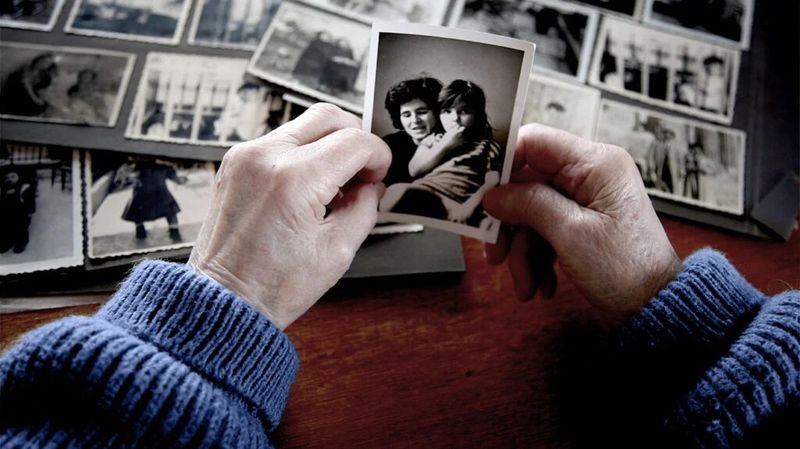16 Small Gestures That Mean The World To Your Aging Parents
The world rarely tells you how raw it feels to watch your parents grow old—until you find yourself in the thick of it. Suddenly, you’re trading the comfort of routine for the ache of distance, busy schedules, and awkward silences that say what no one’s brave enough to admit: time is running out.
Still, you know love isn’t always about grand gestures or perfect words. Sometimes, it’s the smallest, most ordinary acts that land the hardest—things your parents will remember when the noise shuts down and it’s just them, a quiet room, and the echo of your care.
Here’s how you can show up for them in ways that matter—no fanfare, just heart.
1. Share a Meal (Even if it’s Just Takeout)

Remember that scene from childhood: your mom or dad calling you to dinner, table set, food steaming? Now, years later, roles have flipped. You offer to bring dinner or show up with their favorite takeout, and it means more than you think.
It isn’t about the food. It’s the act of sitting across from each other, unhurried, no devices buzzing between bites. You listen to stories you’ve heard before and let them be the center of their own kitchen again.
Even if you just order pizza, sharing a meal says, I want to be here with you—not because I have to, but because I choose to. That’s what lands. That’s what they carry long after the plates are cleared. It’s ordinary, but it matters. Food is an excuse for love, and aging parents notice who shows up.
2. Write a Letter (Handwritten, Not Typed)

Who does this anymore? That’s exactly why it works. Getting a handwritten note from you—messy, imperfect, full of little asides—hits different than any text or email.
A letter is physical proof: you took time, you remembered details, you cared enough to spell things out on paper. Maybe you write about a shared joke, or just thank them for something small they did years ago. Either way, they’ll tuck it in a drawer, reread it, keep it for rainy days.
It’s not nostalgia, it’s connection. Your words stick around, long after they’ve finished reading. When you’re not there, your letter is. Sometimes, that’s all the comfort you can give, and it lands right where it needs to.
3. Offer Rides Without Making It Awkward

Losing the keys is brutal. No one wants to admit that driving’s gotten hard, but you notice: hesitation at intersections, the way their eyes dart nervously. Instead of waiting for crisis, offer a ride, but do it low-key.
Frame it as together time. “I’m headed to the store—want to join?” or “Let’s go grab coffee, my treat.” The dignity you preserve is half the gift. They get out of the house, you get the conversation, nobody has to say, “You’re not safe on the road.”
It’s not about the destination. It’s about lifting the pressure, sharing the road, and making them feel like a part of the world again. Aging isn’t about giving up the wheel; it’s about trusting someone else for a while. That’s real love.
4. Ask for Their Advice (and Actually Listen)

Imagine this: your dad’s face when you ask, “What would you do?” No one asks him for advice anymore, except maybe on how to fix a leaky faucet. But you come for the big stuff—relationships, work, life decisions.
You don’t have to take all the advice. What matters is that you listened, took notes (even if only in your head), and let them feel wise. You remind them they’re still useful, still valued, still part of the story.
Sometimes, they get carried away—their stories wander, their opinions clash with yours. That’s okay. The point is, you see them as more than someone who needs help. You see them as someone who still has something to give. That’s a gift, too.
5. Include Them in Everyday Plans

You know what stings? Feeling left out. Aging parents crave the ordinary stuff: movie nights, walks, Sunday errands. It’s not always about big events.
Invite them to join—grocery runs, coffee stops, or even binge-watching dumb TV shows. Sometimes they’ll say no, but the ask is what counts. It says, “You’re still in my world. I want you there.”
Too often, they sit on the sidelines, watching life go by like a guest at their own party. Including them means letting them participate, not just observe. Let them pick the movie, or complain about how you load the dishwasher. Small stuff, but it adds up to feeling loved.
6. Help With Something They Can’t Admit They Struggle With

Here’s the truth: pride gets loud when you’re getting older. Most parents won’t ask for help, even when it’s obvious they need it. Tech, paperwork, opening jars—these things get harder, but they’d rather struggle in silence than look “incapable.”
Watch for the little signs: bills stacking up, TV remote frustration, missed appointments. Jump in gently. Offer, “Want me to show you how this works?” or just quietly fix what you can without calling attention.
The goal isn’t to parent your parents. It’s to let them keep as much independence as possible, with a safety net made of patience, not pity. That respect is everything.
7. Bring Up Old Stories (and Let Them Finish Them)

Some days, your parents want to feel like the stars of the family movie again. Pull out the old stories—the ones you heard a hundred times growing up. But this time, let them dig into every detail.
Ask about the year they met, the job they almost took, or the neighbor war over fence height. Listen, even when the story meanders. You’re not just passing time; you’re showing their past still matters, that their voice isn’t fading.
Maybe you learn something new. Maybe you just laugh at the same old punchline. Either way, they get to feel heard, not just managed. That’s the kind of dignity that lasts.
8. Set Up a Regular Check-In (No Agenda Necessary)

No one wants to feel like a box you check off. But regular calls, even the pointless ones, build a rhythm. You don’t need a milestone—just a Tuesday, just to say hi.
Sometimes it’s five minutes. Sometimes it’s an hour of catching up on weather and what the cat’s doing. The point isn’t productivity, it’s presence. They know when you’re calling out of obligation, and they know when you’re just there, open to whatever comes up.
It says: “You’re still part of my every week, not just the highlight reel.” And that’s a kind of comfort you can’t schedule, but you can create if you care enough to try.
9. Bring Unexpected Treats (No Reason Needed)

Running errands, you spot their favorite pastry or weirdly specific brand of chocolate. You grab it for no reason, drop it by, and watch their face light up. It isn’t about the treat—it’s about the surprise.
You remembered. That’s the headline. You saw them in a small thing and turned it into a moment. No holiday, no occasion, just a random Tuesday with cake.
Sometimes, these gestures land harder than planned gifts. They say, “You’re worth a little extra effort, even on a day that doesn’t “matter.” That’s the magic: loving someone when it’s not expected, just because you can.
10. Fix or Repair Something Small Without Being Asked

It’s always the little things—burned-out lightbulbs, squeaky cabinet doors, leaky faucets. You spot them, fix them without a fuss, and don’t make a big show of it. No lectures, no “I told you so.”
You just take care of it, then move on. That’s respect—helping without humiliating. It says, “I see what you need, and I’ve got you.”
You’re not making them feel small. You’re making the home safer, quieter, more manageable. Every little fix is an act of care that lingers when you’re gone. They notice.
11. Invite Them Into Your Problems (Let Them Be Needed)

Here’s a twist: let them worry about you for once. When you share your tough days or ask for help—taxes, recipes, life advice—you give them purpose. Parents don’t stop wanting to help just because they’re older.
It can be hard letting them in; you want to protect them from your mess. But being needed is powerful. They want to feel like they still matter in your grownup life, not just as a memory.
Try it once in a while—ask for a favor, advice, or just a listening ear. It’s not a burden; it’s a bond. You’re not their caretaker. You’re still their child, and they still have something to offer.
12. Make a Photo Album or Memory Book Together

There’s a certain magic in sifting through old photos—coffee stains, bent corners, faces frozen in time. Invite your parents to build a memory book, not just for them, but with them. Let them tell the stories behind the pictures.
Maybe you find a photo you’ve never seen, or one that makes you both laugh until you cry. The act of sorting, labeling, and reminiscing together turns nostalgia into connection. It’s not about the finished product, but the time spent making it.
And in the end, you create something they’ll reach for when days feel long and lonely. It’s a way of saying, “Your life matters, your story counts, and I want to remember it all with you.”
13. Bring Them Into Your Social Circle (Just One Time)

Ever see your parents light up when they meet someone new? Bring them along—just once—to your book club, dinner party, or coffee catch-up. Let them be part of your world in a way they aren’t usually.
You’re not “babysitting” them; you’re showing them off, letting them belong. They catch up on new slang or share a story that makes your friends laugh. It’s awkward sometimes, but the pride in their eyes is worth it.
You might be surprised: your friends get something out of it, too. And for your parent, it’s proof they’re still interesting, still welcome, still more than just “old.”
14. Create a Low-Key Celebration for No Reason

Big birthdays and holidays get all the attention, but ordinary days can be lonely. Show up with cupcakes for “half-birthdays” or make a toast on a random Thursday. The surprise celebration says, “You matter, even when the calendar isn’t paying attention.”
No pressure, no speeches—just laughter and silly decorations. It’s a reminder that joy doesn’t need a reason or a rulebook. You just want to see them smile for the fun of it.
These little parties don’t erase hard days, but they sprinkle in memories where you least expect them. That’s more than enough.
15. Share a Hobby or Learn Something New Together

Think about the last time you both tried something for the first time—knitting, gardening, puzzles. Learning together levels the playing field, no experts allowed. You get to laugh at mistakes, celebrate tiny wins, and make memories where age doesn’t matter.
It’s not about being good at it. It’s the act of trying, side by side, that brings you closer. Maybe they teach you an old skill; maybe you team up on something new.
That shared effort says, “We’re still building something together.” It’s not about the finished scarf or the perfect tomato—just the time, the laughter, and the sense that you’re both still growing, together.
16. Listen Without Fixing

Sometimes, all they need is a listener. Not advice, not a solution—just someone to hear the hard stuff without turning it into a project. You sit there, coffee in hand, and let them say what they need to.
You don’t rush in with answers. You don’t look at your phone. You just stay present, nod, and let the silence hang if it needs to.
There’s power in being the safe space, not the fixer. It’s vulnerability—on both sides—that brings you closer. When words run out, what’s left is trust.







